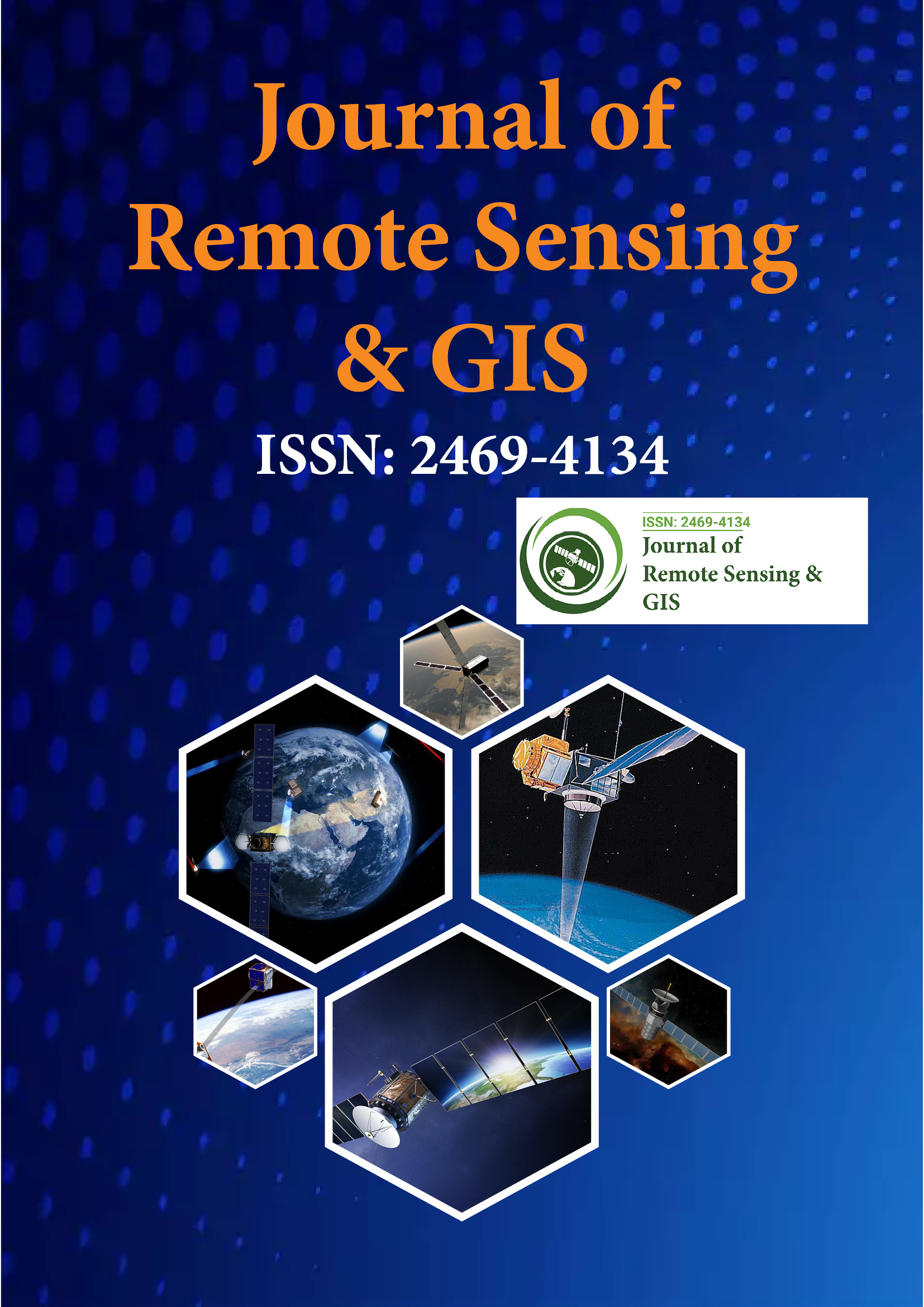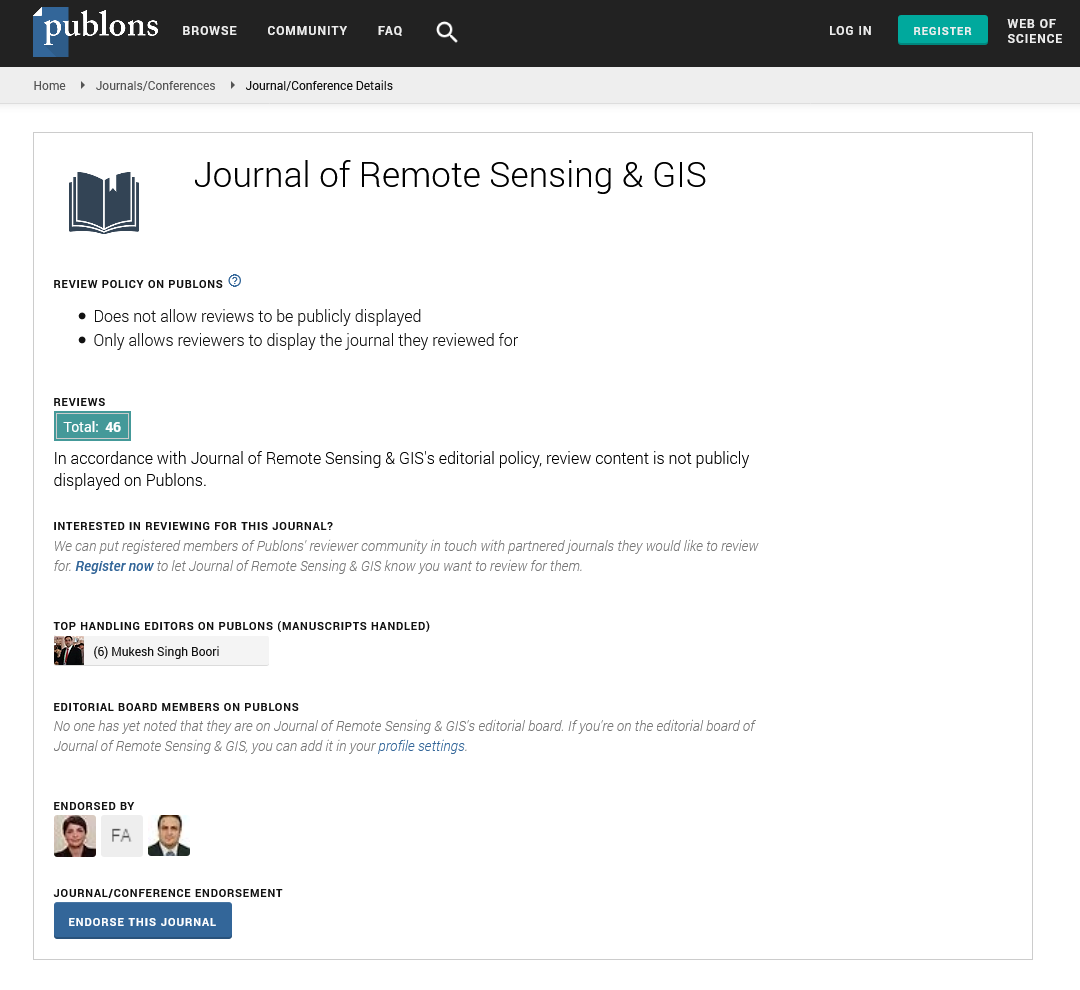Indexed In
- Open J Gate
- RefSeek
- Hamdard University
- EBSCO A-Z
- OCLC- WorldCat
- Publons
- International Scientific Indexing
- Euro Pub
- Google Scholar
Useful Links
Share This Page
Journal Flyer

Open Access Journals
- Agri and Aquaculture
- Biochemistry
- Bioinformatics & Systems Biology
- Business & Management
- Chemistry
- Clinical Sciences
- Engineering
- Food & Nutrition
- General Science
- Genetics & Molecular Biology
- Immunology & Microbiology
- Medical Sciences
- Neuroscience & Psychology
- Nursing & Health Care
- Pharmaceutical Sciences
Planning with natural disasters land use analysis using GIS and remote sensing case: La Guaira, Venezuela
3rd World Congress on GIS and Remote Sensing
September 20-21, 2017 Charlotte, USA
Eduardo Rendon
APD Urban Planning & Management, USA
Scientific Tracks Abstracts: J Remote Sensing & GIS
Abstract:
Cities in the developing world are facing increased risks of disaster. Potential human and economic losses from natural hazards are now frequently observed in unplanned urban areas. In December 1999, debris flow in the inundated coastal communities in La Guaira, Venezuela and caused severe property destruction and a catastrophic death toll of approximately 15,000 people. This research focuses on land use analysis through the identification of the most vulnerable areas using geospatial techniques. This process directed the evaluation of the most suitable areas for development. The study also combines literature reviews, precedent studies, remote sensing for urban applications and design strategies addressing disaster resilience. Information obtained from the satellite images processing shows that 27.5% of the residential land used in the study area was affected by debris flow during the atypical rainfalls. The serious consequences have significantly affected the society, economy and even the landscape and urban developments. The land use analysis performed, covers a set of actions undertaken to redesign and restore communities affected by this natural disaster. La Guaira could be reimagined and revitalized through a combination of resilience measures, including protected areas and green corridors.
Biography :
Eduardo Rendon has more than 10 years’ experience. He first started working for Non-profit Organizations in urban ecology projects. Since then, he has been integrating geospatial technologies to understand the dynamics of urban systems. While participating in several urban projects in Caracas, he focused his expertise on the mitigation of natural hazards and urban resilience of the city. His skill set has allowed him to work as a Consultant on different international projects for NASADevelop. He is currently working as GIS Environmental Planner for APD Urban Planning and Management in Atlanta, GA.

